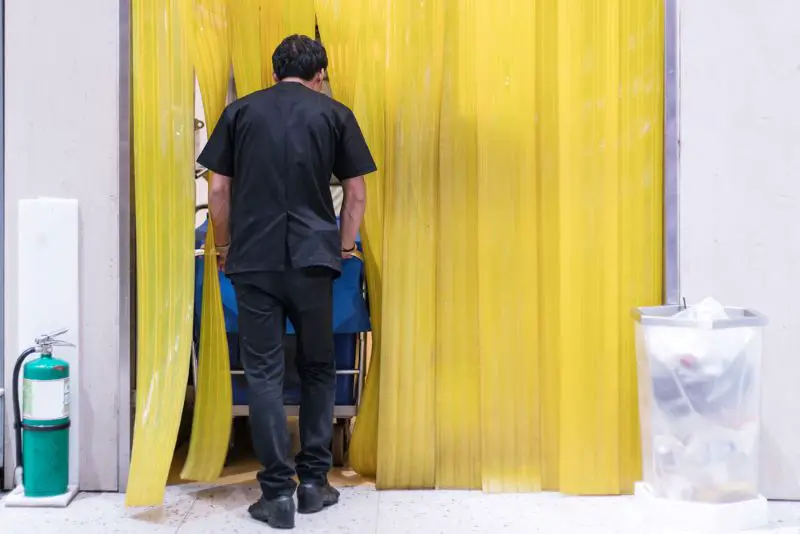Click here to get this post in PDF
Strip curtains, also known as PVC strip curtains, act as a very effective barrier in all kinds of industrial settings, and they are perfect for food production areas where there is an absolute requirement for good hygiene practices.
Strip curtains primarily help control temperature, airflow, and humidity for optimum food production conditions while allowing unimpeded passage for personnel and equipment.
Crucially, they also stop pests such as insects from getting into food production areas. Insects and mites can contaminate food products through faeces, physical damage and nesting behaviours. If you need to learn more about how strip curtains could be perfect protection for your food production areas, consider getting help from a company that specialises in all kinds of strip curtains and can advise on the best options for your industry.
Here’s a description of how they can keep out pests and other contaminants while performing other vital functions.
Dust, Insect, Bacteria and Pest Control
Preventing cross-contamination is paramount to ensuring safety and quality in food production settings. Strip curtains act as a physical barrier to restrict the passage of contaminants, including airborne particles such as dust, debris, odours, bacteria, and insects. This helps maintain a clean and hygienic environment and reduces the risk of product contamination. It also helps create a more pleasant work environment.
Temperature Control
Regulating temperature in areas with high traffic flow and frequent loading bay or door openings can be challenging. In a food production setting, it is essential to maintain the correct temperature at all times to preserve food quality and safety. The ability to help control temperature is one of the most significant benefits of strip curtains. This function even minimises heat transfer between different areas. It maintains consistent and optimum temperature in different, adjoining areas, for instance, in a cold storage room next to a food preparation area. Another benefit of temperature control is improving employee productivity when the working environment is more comfortable.
Humidity Control
Industry regulations stipulate that particular food and manufacturing processes require exact humidity levels to prevent spoilage and maintain product quality. Strip curtains help control humidity by creating a barrier that prevents moisture contamination within different areas. This is particularly crucial in areas containing sensitive equipment or drying rooms.
Airflow Management
Proper airflow is essential for maintaining good hygiene and the comfort and health of those working within restricted areas such as food production. When installed and used correctly, strip curtains allow for controlled airflow at all times, providing an effective barrier against known contaminants such as insects, dust, debris, and airborne bacteria. Regulating a correct airflow using strip curtains helps create and maintain sanitary conditions and uphold food safety standards.
Noise Reduction Advantages
Many industrial processes, including some food production processes, can generate significant noise levels, which can disrupt workers’ health and welfare in the immediate and surrounding areas. Strip curtains help to reduce noise transmission by providing a barrier to absorb and dampen sound. This can be especially helpful where noise levels have to be kept at specific minimum levels, for example, in areas close to residential areas or loading bays. Helping to make the working area more comfortable for employees helps reduce stress, distraction and tiredness, reducing employee sickness days off.
In conclusion, strip curtains are important in providing a safety barrier for regulating temperature and preventing contamination, which is perfect for food production.
You may also like:
Why Strip Curtains Are Essential For Business
How PVC Strip Curtains Can Improve The Efficiency Of Your Commercial Space
Image source: Depositphotos.com

